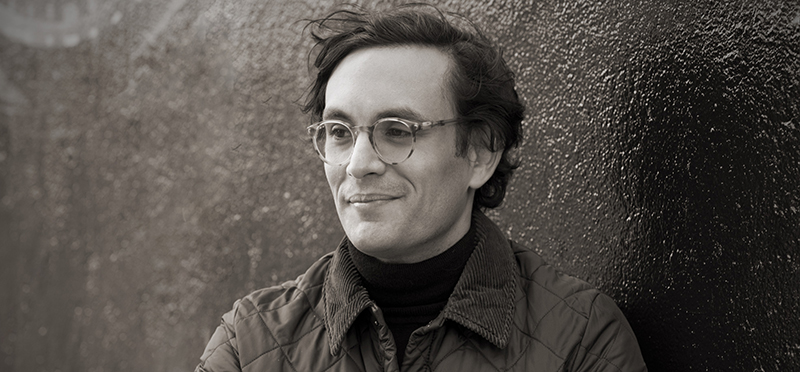
Simon Van Booy has a way with words. A way with people, really. An observation of life that builds on a page like the slow, calculated movements of the constructs of an igloo. His stories offer a richness to life’s every day instances – love and loss, birth and death, the climbing and the falling of dreams.
I’ve been a fan of Van Booy’s for a few years now, reading his first collection, The Secret Lives of People in Love, at the insistence of my poet cousin and friend of the author, Lucas Hunt. That first book pulled me in, an enraptured gathering of stories told by a watchful eye and a perceptive pen, as if you were able to read the memoirs of people traversing your path in random hallways, offices, train stations. The stories of good days and bad weeks and years of passage. Of worries and woes. Of love lost and found between friends, partners, family. His subsequent novels, Love Begins In Winter, Everything Beautiful Began After, and The Illusion of Separateness, continued the storytelling with further insight into the complications of a stranger’s heart.
His latest collection of stories, Tales of Accidental Genius, looks to the lighter side of life, where moments of joy and kindness prevail. Where readers who are almost inevitably expecting the worst can breathe with ease at tales highlighting the best in people, strangers and loved ones alike. The good deeds of a humble pet shop employee, the quest of a man anxious to secure the future of his family. Moments in every day life that keep love and light moving along. In what is surely a reflection of the love and light found in Mr. Van Booy’s life in recent years, it is a wonderful addition to his already admirable pieces of work.
Q: Is there a time in your life when you realized you wanted to be a writer? What did it take for you to consider yourself a writer?
A: I wanted to write stories from a young age. I considered myself a writer long before I ever really wrote anything. The training just had to catch up with the instinct part.
Q: How long did it take for you to find your writing voice?
A: I thought I had found it in 2000, with ‘Snow Falls and Disappears,’ but now I realize that a writer can have many voices, the same way nature has seasons. So I’m still looking for something that’s impossible to pin down because it’s always evolving, rather like me (if I can be honest with myself).
Q: What does your writing process look like?
A: It usually begins with a man in his pajamas rolling around on the floor screaming. Then 5 cups of tea. Then sighing. Then finally I sit down to work and I when I look up, three or four hours have passed. The key is not to be too critical at the beginning…save that for the editing process. The magic is not in why you’re doing it, but why it’s impossible for you not to do it….
Q: There’s a great deal of description and observation in your stories that it feels as though many of the characters are real. Are they oftentimes, and if so, why choose to write them in fiction instead of non-fiction?
A: I love how the term ‘non-fiction’ implies uncertainty. We can’t bring ourselves to say ‘truth,’ so we define it by what it isn’t. We don’t call fiction, ‘non-truth.’ And! When non-fiction turns out to be fiction, it’s a scandal, but when fiction turns out to be non-fiction, it’s thrilling.
Q: When do you know when a piece is complete?
A: When editing gives me the feeling that I’m ruining it, or when I can’t actually see words anymore.
Q: Your new book, Tales of Accidental Genius, is a collection of insight into people’s lives, as you mentioned in a recent interview, “the world through moments of spontaneous compassion”, which I find to be such an encouraging thought. I loved the tale of the goldfish, of course, but my favorite story was the last in the book, The Golden Helper II. So many levels of interweaving. How did that story come about?
A: That story was edited close to 100 times, or 500, or 88…I really don’t know but a lot. My computer has probably recorded it somewhere. I wanted it to sound like it had been translated from Chinese, (perhaps because I’ve been translated from Chinese (my great grandfather was Cantonese)). But I could only do that with the language by actually learning Chinese (this getting complicated, I know), which I have been for about three years. I knew the story, but had to get the language right.
~Jennifer Matthewson
*Photo credit: Ken Browar
